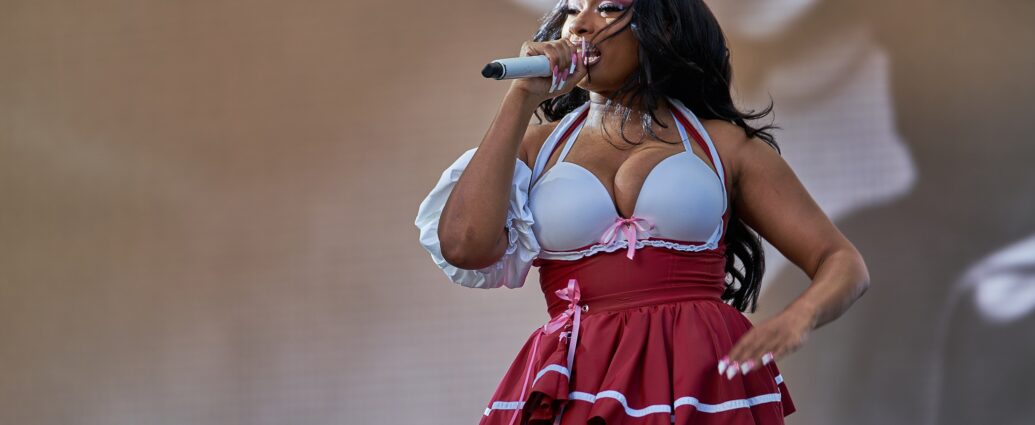Alice Bennett
The online war between Nicki Minaj and Megan Thee Stallion has escalated, with fans threatening and even doxxing TikTokers to defend their idol. Do these fans show how parasocial relationships with celebrities have gone too far, and are the celebrities themselves responsible?
Nicki vs Megan
The drama between superstar rappers Nicki Minaj and Megan Thee Stallion has taken over the internet. The feud between the two artists has been divisive, with fans from both sides fighting on social media.
“The lyric about Megan’s Law caught everyone’s attention”
I’ll give you a quick breakdown for those who weren’t glued to TikTok during the feud. Megan Thee Stallion released her song ‘HISS’ on 26th January, indirectly dissing multiple public figures, including, allegedly, Drake, Tory Lanez and Nicki Minaj. The lyric about Megan’s Law caught everyone’s attention, as the line refers to laws in the US that require information regarding sex offenders to be made public and was interpreted to be referencing Minaj’s husband, who was convicted of rape in 1995.
Minaj then went on a tirade on X/Twitter, accusing Megan of bullying and calling her a “Pathologicalliar.” Subsequent & manipulative toy, she released the widely panned response track, ‘Big Foot.’ If nothing else, her Disney villain-esque ASMR in the song will give you a good laugh.
‘Crazy’ Fans and Parasocial Relationships
Minaj’s actions have resulted in many loyal ‘Barbz’ (the nickname for her fanbase) retiring their status as Nicki fans and holding her accountable for her behaviour. This is because Big Foot’ refers to Megan’s late mother and mocks her being shot in 2020, leaving her with an injured foot.
This reflects changing attitudes towards public figures. As more people hold celebrities responsible, an artist’s online behaviour is just as important as the music they produce.
“The darker side of fandoms and the frightening reality of parasocial relationships going too far.”
The remaining fans, with Minaj’s encouragement and gratitude, have taken to attacking her critics. They have even doxxed one TikToker and got their account banned. The ‘rabid’ side of fan bases is usually the minority. Unfortunately, this doxxing scandal exposes the darker side of fandoms and the frightening reality of parasocial relationships going too far.
The Barbz are not new to doxxing scandals, and Nicki has a history of instigating this kind of behaviour. Whilst Nicki has publicly told Barbz not to attack anyone on her behalf, she has often been caught liking Tweets by fellow rappers that have encouraged harassment of others. She has currently been liking and retweeting her fans’ disparaging posts about Megan:
https://twitter.com/ONIKALIVE/status/1751522130552889432?ref_src=twsrc%5Etfw
Ultimately, the abuse towards Megan online on behalf of Minaj begs the question: who is responsible for creating this toxic culture – the artists or the fans?
Celebrity Responsibility
Although I disagree with the discourse that puts a lot of responsibility on female stars to be role models to police their sexuality, Minaj’s bad behaviour sets a precedent. It contributes to this toxic part of the fanbase. It sets a bad example for younger, vulnerable, and more intense fans.
It’s important to look at how the celebrities themselves encourage parasocial relationships. Having emotionally invested fans contributes to their success, which is why it’s common to see celebrities addressing their fans on social media in such a personal way.
“Public figures need to take some responsibility for their fans.”
Whilst this isn’t necessarily a bad thing, public figures need to take responsibility for their fans, particularly those younger and more vulnerable. The celebrity is knowingly encouraging this parasocial relationship.
It is especially outrageous for public figures to take advantage of their fans to do their bidding. The toxicity within the Barbz fanbase can be likened to some political scandals. For example, the attack on the Capitol Building incited by Donald Trump on Twitter was a manipulation of parasocial relationships.
It shows that influential figures with power have the potential to cause serious damage. However, seeing people on social media hold powerful people accountable for bad behaviour is encouraging.
READ NEXT:
-
SINGLE REVIEW: ‘J CHRIST’ BY LIL NAS X
-
TORY LANEZ SENTENCED TO 10 YEARS IN PRISON FOR SHOOTING MEGAN THEE STALLION
-
ALBUM REVIEW: ‘MILLENIALS’ BY THE SNUTS
Featured image courtesy of Valerie Albert via Wikimedia Commons. No changes were made to this image. Image licence found here.

